SPACEFLIGHT UK space launch ground facilities
Taking control
In addition to hosting a large number of space manufacturers, the UK also has a number of ground facilities which can be used to control and operate satellites in orbit. BILL READ FRAeS reports.
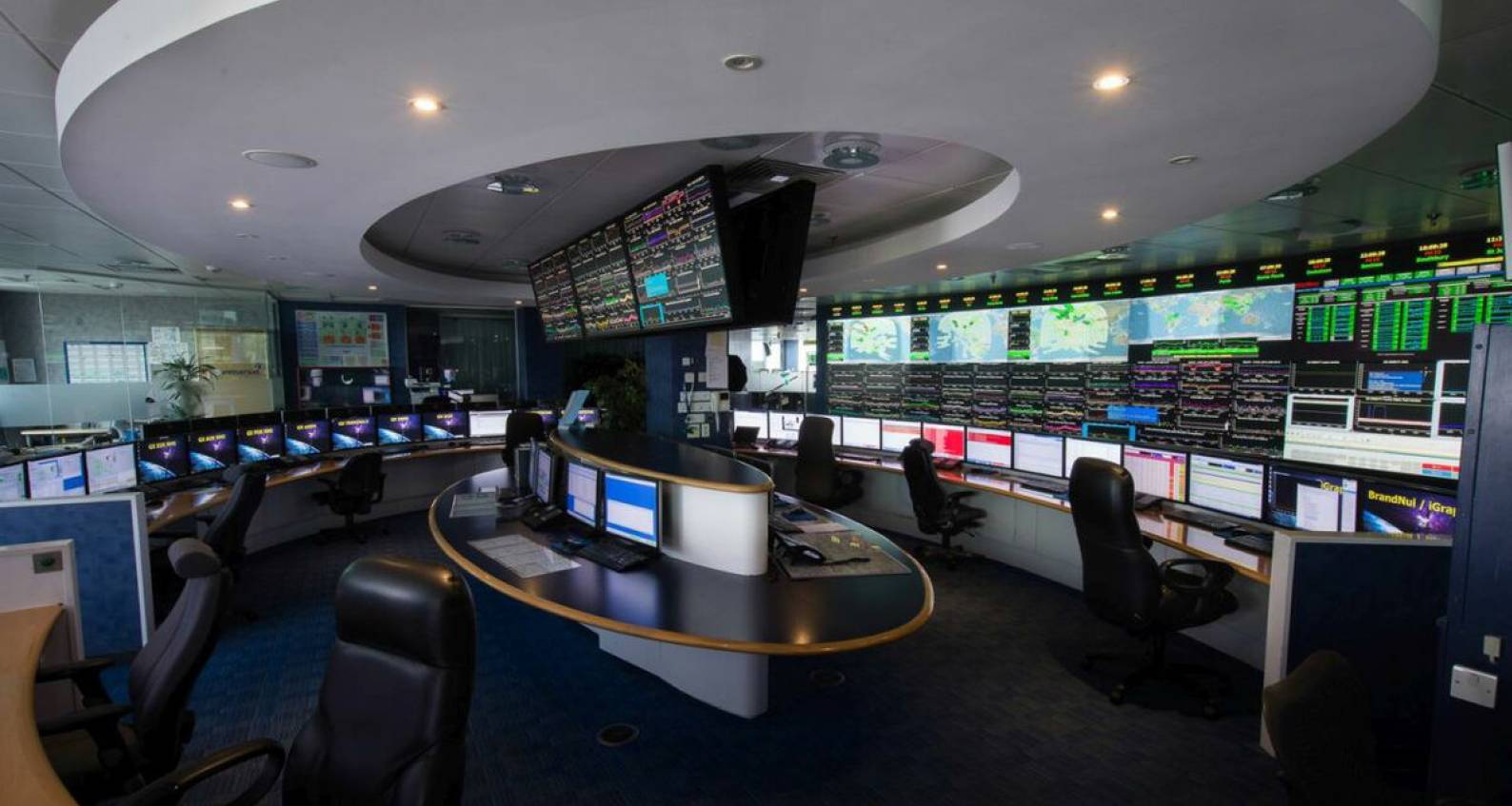 The Inmarsat satellite control room in London. Inmarsat
The Inmarsat satellite control room in London. Inmarsat
As has been described elsewhere in this issue, there are a large number of UK companies specialising in the manufacture of satellites. When completed and launched into orbit, these satellites are controlled from ground stations around the world – many of which are located abroad but a sizeable number of which are operated from the UK. Large international satellite companies often operate a network of interconnected ground stations around the world which can communicate and transfer control to each other. Some of these operators also control satellites from the UK.
A major function of the ground stations is the transmission, collection and storage of large quantities of information including audio, video data and images related to the Internet connectivity, mobile phone transmissions, military and civil Earth observation data. Some of this data is also collected and processed in the UK.
Inmarsat: From sea to space
Probably the most well-known UK-based satellite operator is Inmarsat which is based in London. Set up in 1979 by the International Maritime Organization (IMO) to develop a satellite communications network for protecting lives at sea, Inmarsat has evolved into an international provider of satellite services and solutions. Its customers include: airlines, shipping fleet operators, military, aid agencies, mining, logistics, agritech and many other commercial enterprises.
Currently, Inmarsat flies 14 satellites in geostationary orbit delivering safety and broadband voice and data services around the world. A further seven satellites are planned to be launched over the next three years. Control of Inmarsat’s satellites is conducted from the company’s Network Operations Centre in London which monitors the network elements of its services. These include the continued and reliable operation of the Inmarsat networks by supervising network operations, co-ordinating network activities and taking corrective actions as necessary to meet the network availability and service quality objectives. Should there be any problems with the system, Inmarsat can use its ground infrastructure network to take over any functions.
SSTL
In-orbit satellite operations are also performed by UK satellite manufacturer SSTL from its Satellite Operations Centre in Guildford. The centre is linked to other SSTL-equipped ground stations, enabling the control of satellites across the world. While many SSTL customers control their own missions from SSTL-supplied ground stations, the Guildford facility is available for backup operational support.
Satellite Catapult
The UK now has its own a custom-built satellite operations centre which is available for use by space sector organisations. Located in Harwell in Oxfordshire, the newly built In-Orbit Servicing and Control Centre is operated by the Satellite Applications Catapult (SAC). The Operations Centre at the Catapult offers support for satellite flight operations, payload data processing and preparing satellite technology for commercial operations.
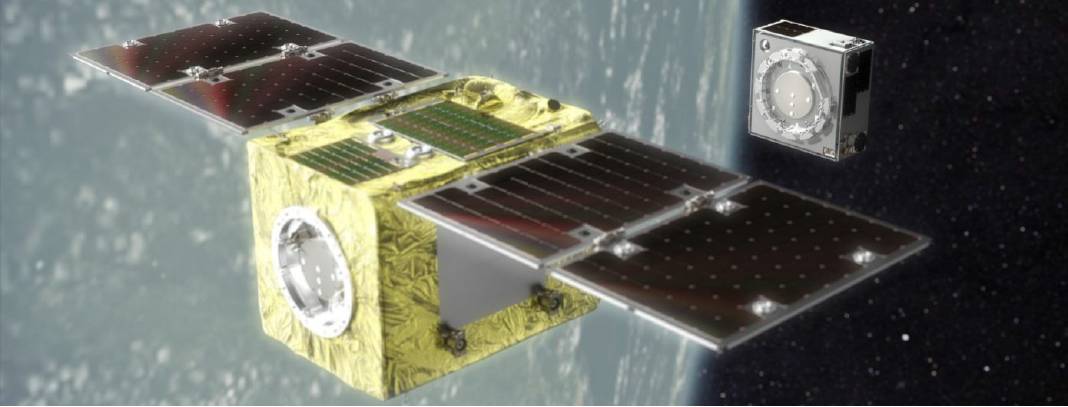 An ELSA-d satellite. Astroscale
An ELSA-d satellite. Astroscale
SAC’s Flight Operations Segment (FOS) offers a 16-seat plus 16 standing ready-to-use ground control facility, consisting of a video wall connected to eight individual workstations with two HD monitors per workstation and a switchable privacy glass wall with a security-controlled door. According to SAC, the Operations Centre is capable of operating a variety of missions, including TechDemoSat (TDS) satellites, Disaster Monitoring Constellation (DMC) and European and UK bilateral missions. The Flight Operations Segment (FOS) can operate standard Consultative Committee for Space Data Systems (CCSDS)-compliant spacecraft, as well as low-cost platforms produced by key industry players.
In addition to monitoring and controlling SSTL and CCSDS-compliant missions, the Operations Centre can interface with other SLE-compliant ground stations and has the capability to download, process, archive, and disseminate payload data and products. It also offers the Sentinel Data Access Service (SEDAS), on online portal designed to help organisations to search and download data available from public and private satellite operators. Other facilities include the Data Discovery Hub (DDH) which lists both open and licensed Earth observation and geospatial datasets, as well as Climate, Environment and Monitoring from Space (CEMS) offering space-based climate change and Earth observation (EO) data and services. in conjunction with Infrastructure as a Service (IaaS) cloud-based computing.
Astroscale
One company already making use of the In-Orbit Servicing and Control Centre in Harwell is space debris recovery company Astroscale. Headquartered in Japan, Astroscale Holdings has a number of offices around the world, including satellite servicing research and payload development at Astroscale Israel, Administration and Finance in Singapore, business development and technology growth in the US and an Operations Centre at Harwell in Oxfordshire. The Harwell In-Orbit Servicing and Control facility is currently controlling the in-orbit mission of Astroscale’s End-of-Life Services by Astroscale demonstration (ELSA-d) satellite. Launched from the Baikonur Cosmodrome in Kazakhstan on 20 March aboard a Soyuz rocket operated by GK Launch Services, the aim of the ELSA-d mission is to demonstrate the core technologies and capabilities necessary for space debris docking and removal. The mission will involve repeat docking and release manoeuvres between the servicer satellite and the simulated client satellite, which is equipped with a ferromagnetic plate to assist the servicer with its magnetic docking procedure.
Skynet
Also at Harwell is RAL Space, the UK’s national laboratory to advance the understanding of space and environment. Working with UK and overseas agencies, universities and companies, RAL assists with scientific research and technology development for space and ground-based projects. This includes the provision of operating ground stations and processing and analysing data.
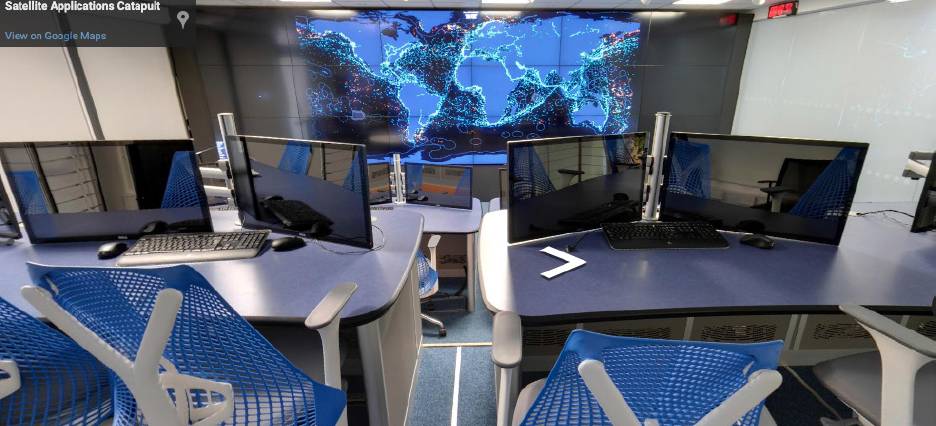 Satellite Applications Catapult control room. Google
Satellite Applications Catapult control room. Google
One of RAL’s customers is Airbus Defence and Space which, since 2003, has managed the Skynet 5 programme to provide the UK MoD with military communications services.
In July 2020 Airbus Defence and Space signed a £500m contract with the UK Ministry of Defence to extend and enhance the Skynet satellite fleet. The contract covers technology development programmes, new secure telemetry, tracking and command systems, launch, in-orbit testing and ground segment updates to the current Skynet 5 system. It also includes the development, manufacture, cyber protection, assembly, integration, test and launch of a new military communications satellite, Skynet 6A, based on Airbus’ Eurostar Neo telecommunications satellite platform. According to Airbus, Skynet 6A will utilise more of the radio frequency spectrum available for satellite communications and the latest digital processing to provide both more capacity and greater versatility than Skynet 5 satellites. The satellite will feature electric orbit raising propulsion, as well as electric station keeping systems for maximum cost effectiveness. Due for launch in 2025, the new satellites are to be integrated at Airbus facilities in the UK and tested using RAL Space’s space testing facilities at Harwell.
However, the Airbus D&S contract is due to end in 2022 and is being put out to tender to other bidders. The identity of the bidders is currently confidential but one is believed to be the Athena consortium comprising Serco, Inmarsat, CGI UK and Lockheed Martin UK. If the contract goes to another company, then there will be a one year transition period starting in July 2021.
Another military ground network is the US Air Force Satellite Control Network (AFSCN) located at seven sites around the world, including one at MoD Oakhanger in Hampshire. The AFSCN monitors the position of orbiting satellites, as well as space objects.
Testing satellites
The RAL at Harwell also operates the National Satellite Test Facility designed for the environmental testing of space payloads and satellites up to 70,00kg. The NSTF will provide facilities for the assembly, integration and testing of space payloads and satellites, enabling UK companies to develop the new large, complex spacecraft and test them in the UK. From 2022 the NSTF will offer cleanrooms for large satellite preparation and solar array deployment; facilities to measure a satellite’s mass properties to ensure that it is consistent with its design parameters; a satellite vibration test facility; pyro-shock tests to simulate separation of the satellite from the launch vehicle adapter; a test facility to simulate the acoustic environment under the fairing of the launch vehicle during launch; a thermal vacuum chamber to simulate the vacuum and thermal conditions in space; and an electro-magnetic compatibility (EMC) and antenna testing facility.
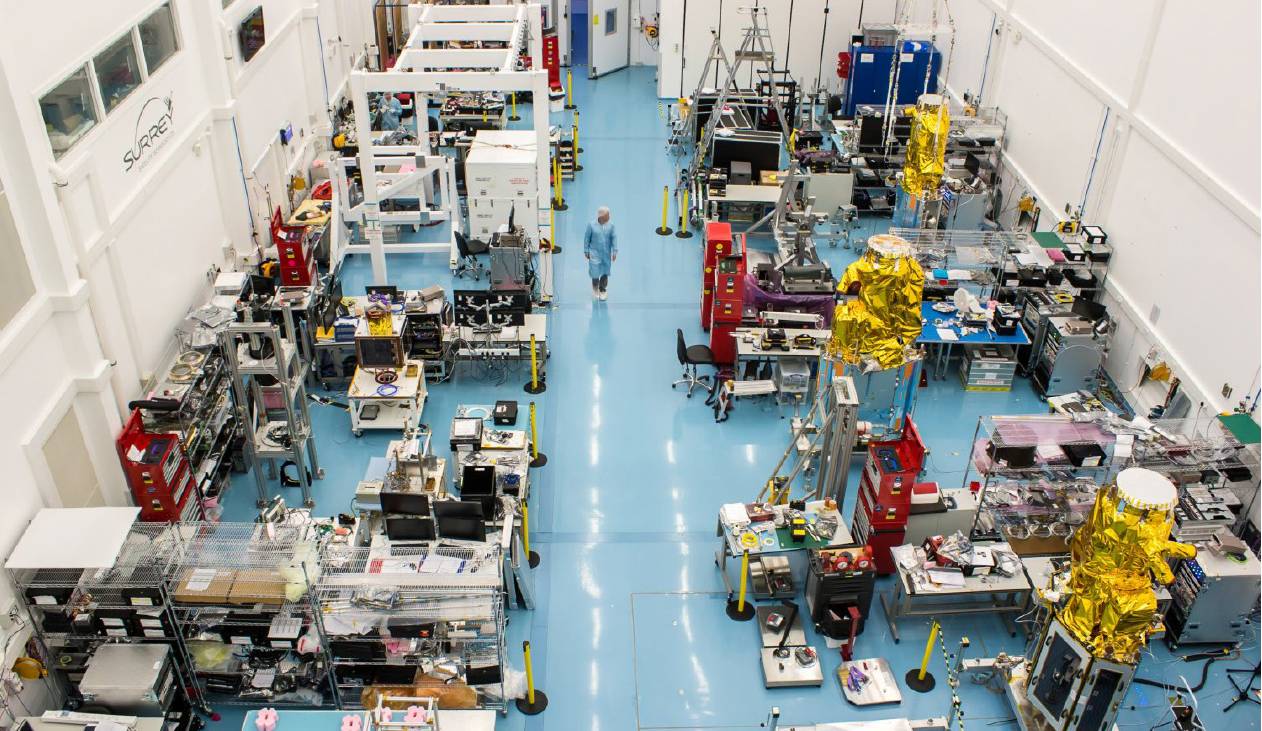 SSTL satellites under construction. SSTL
SSTL satellites under construction. SSTL
International networks
A number of international space companies have a site in the UK, including satellite solutions and services group Telespazio which designs and develops space systems, manages launch services and controls satellites in-orbit. Telespazio UK based in Luton focuses on the provision of Earth observation and climate services.
International space-based data and analytic nanosatellite operator Spire collects spacebased data through a constellation of over 100 satellites. This data is then available to commercial and government organisations around the world to improve business operations, decrease their environmental footprint, deploy resources for growth and competitive advantage and mitigate to risk. Spire Global, which recently merged with NavSight Holdings, has offices in San Francisco, Boulder, Washington DC, Luxembourg, Singapore and Glasgow.
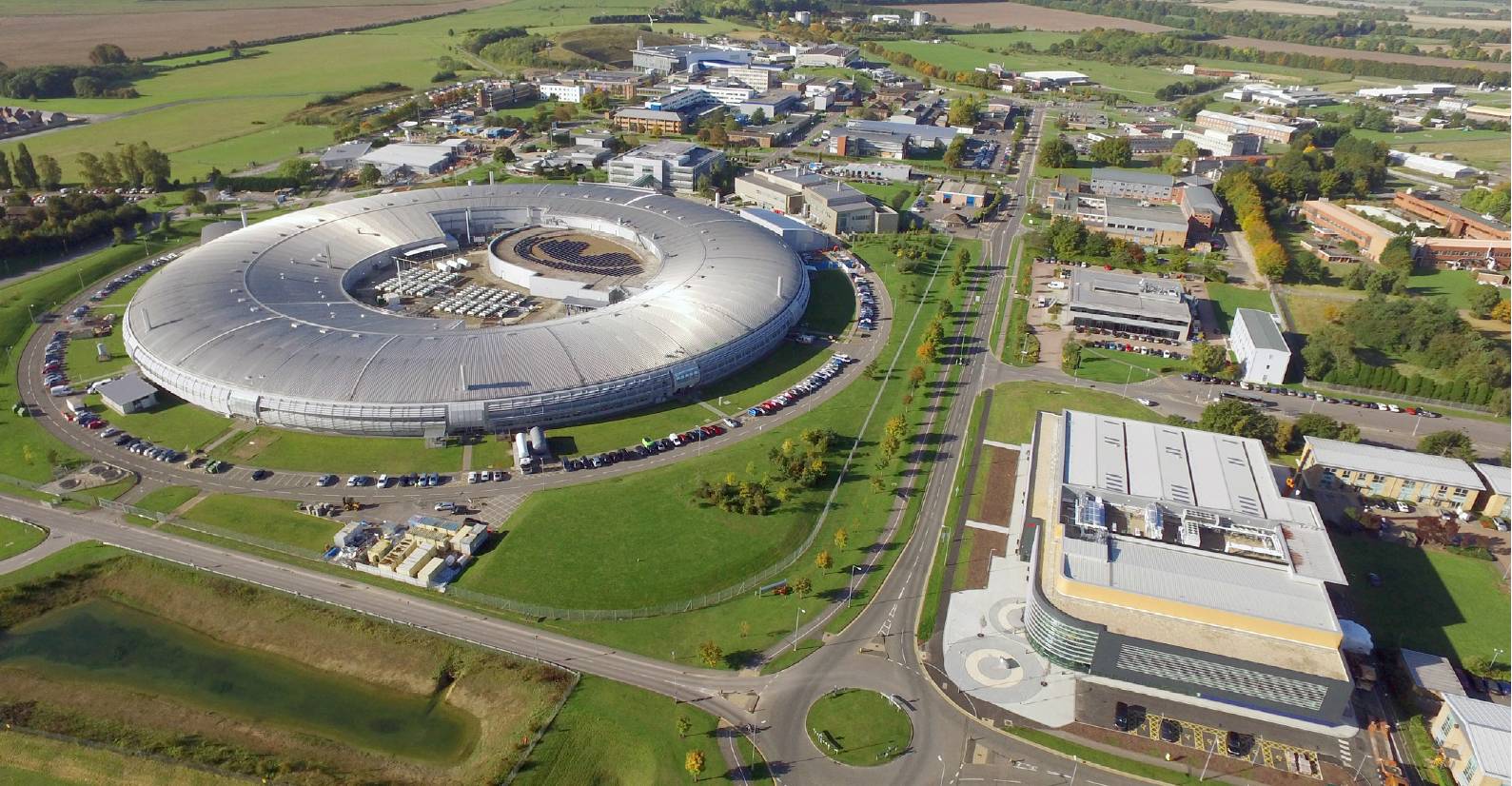 Aerial view of RAL Space at Harwell. RAL
Aerial view of RAL Space at Harwell. RAL
Other UK satellite companies
Another satellite operator to be operated from the UK is OneWeb which plans to offer broadband connectivity services via a constellation of 650 LEO satellites. In November last year, OneWeb emerged from US Chapter 11 bankruptcy the Low Earth Orbit (LEO) broadband satellite communications company, after being rescued by the UK government and Bharti Global.
The UK also has an interest in several international satellite companies, including NSSLGlobal which provides satellite communications, IT support, voice and data services. Merged with the ESL Group in 2014, NSSLGlobal is headquartered in Redhill and has offices in Newcastle and Cornwall in the UK, as well as Denmark, Germany, Poland, US, Singapore, Norway and Southern Africa.
Another Surrey-based satellite company is Earth-i which operates out of the Surrey Research Park in Guildford. Earth-i specialises in providing geospatial information based on multi-operator, multi-resolution, multi-sensor Earth observation data, including satellite images. The images can be from anywhere on Earth and include particular locations or infrastructure, such as forests, ports, mines, refineries, construction sites, farms, roads or car parks (see Private eyes on Earth, April 2021, p 26).
In Cornwall, Goonhilly Earth Station is a carrier-grade satellite communications centre offering mission operations. Goonhilly one of the partners (with SSTL and ESA) in the Lunar Pathfinder 1 project to deploy a lunar lander linked to orbiting lunar CubeSats to relay data between Earth and the Moon. Goonhilly is to provide the communications link and mission operations facility.
Many of the UK’s new space companies are based in Scotland. Clyde Space in Glasgow specialises in providing advanced small satellite solutions, mission services and subsystems. The company provides services for government, commercial and educational organisations and builds 80 small satellites a year. In addition to the UK, Clyde Space has offices in Sweden and the USA, with partner networks in Japan and South Korea.
Other Scottish companies involved in satellites include Skyrora which produces the Skyrora XL launch vehicle to carry small satellites into orbit and Orbex based in Forres near Inverness which is building the Prime launch vehicle which will launch small satellites into orbit from Space Hub Sutherland (see The Magnificent Seven).
 The Inmarsat satellite control room in London. Inmarsat
The Inmarsat satellite control room in London. Inmarsat An ELSA-d satellite. Astroscale
An ELSA-d satellite. Astroscale

